Outspoken Iranian activist sews lips shut, stages silent sit-in
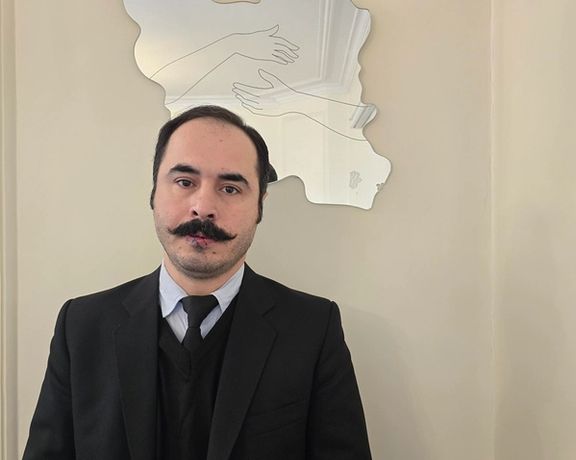
One of Iran's most vocal dissidents outside of prison is trying a new tack: sewing his lips shut and staging a silent protest at one of Tehran's busiest intersections.

One of Iran's most vocal dissidents outside of prison is trying a new tack: sewing his lips shut and staging a silent protest at one of Tehran's busiest intersections.

The incoming US administration will not seek talks but rather the total destruction of Iran-backed armed groups Hezbollah and Hamas, US President-elect Donald Trump's nominee to be ambassador to Israel said on Monday.
Former Arkansas Governor Mike Huckabee's remarks foreshadow a harsh new policy toward the United States and Israel's shared adversaries in the likely event of his confirmation.
"They need to be suffocated and ended. There's no peace in that region until these terror groups funded by Iran are completely eliminated" Huckabee, a longtime staunch backer of the Jewish state, told Fox News in an interview.
"Why would we in any way pretend that they are going to be capable of sitting down at the table, having Kool-Aid with us and somehow we're all going to get along, toast marshmallows and sing kumbaya?" the outspoken evangelical Christian politician and broadcaster added.
"Ain't going to happen. They've got to be eliminated."
Huckabee in previous statements has said there is no such thing as an Israeli occupation of Palestinian lands.
In a statement, President Trump hailed Huckabee's standing among Israelis: "He loves Israel, and the people of Israel, and likewise, the people of Israel love him. Mike will work tirelessly to bring about Peace in the Middle East!"
Huckabee added on Monday that the current policies of President Joe Biden are harsher on US ally Israel than their Mideast allies, foremost among them Iran.
"What we've had is a schizophrenic policy toward Israel. We've put far more pressure with Joe Biden on Israel than we have on Hamas, Hezbollah, and most importantly, the people who write those checks, the Iranians."
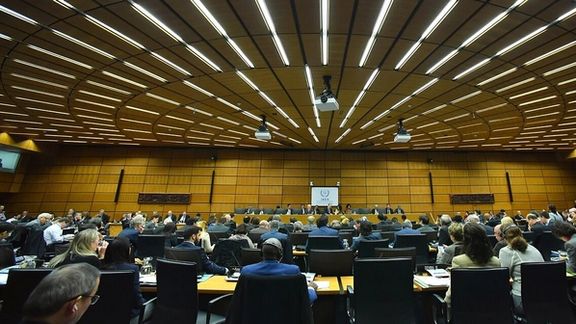
France, Britain, Germany, and the United States will introduce a censure resolution against Iran at the upcoming meeting of the International Atomic Energy Agency (IAEA) Board of Governors despite Tehran's threats to retaliate, Iran International has learned.
The resolution seeks to formally rebuke Tehran over its failure to cooperate with the UN nuclear watchdog and urges the Islamic Republic to take appropriate steps in this regard, a German Foreign Ministry spokesperson told Iran International on Monday.
The decision by the US and its European allies to move forward with the censure resolution comes despite Iran's threat to retaliate if such a resolution is adopted.
"If the IAEA Board of Governors passes a censure resolution against Iran, the Islamic Republic will undoubtedly take reciprocal action and implement new measures in its nuclear program, which they will certainly not like," Iran's Foreign Minister Abbas Araghchi told the state TV on Saturday.
The IAEA Board of Governors will convene its regular November meeting in Vienna at 10:30 CET on Wednesday, 20 November. Board discussions are expected to include verification and monitoring in Iran in light of United Nations Security Council resolution 2231 (2015) as well as the NPT safeguards agreement with Tehran, according to an IAEA press release.
The meeting will be held one week after the IAEA director general met Iran's President Masoud Pezeshkian in Tehran. In the meeting, Pezeshkian said Iran was prepared to cooperate with the UN nuclear watchdog to clear up "alleged ambiguities about the peaceful nuclear activity of our country".
Iran allowed Grossi and his team to tour Fordow and Natanz, two key nuclear sites, on Friday apparently in hopes that it would convince the Board of Governors not to move forward with the censure resolution. However, that strategy does not seem to have worked.
“Iran has not fulfilled its obligations under the NPT and Safeguards Agreements. The recent visit of IAEA Director General Rafael Grossi to Tehran has not changed this assessment," the German foreign ministry spokesperson told Iran International.
Algeria, Argentina, Armenia, Australia, Bangladesh, Belgium, Brazil, Burkina Faso, Canada, China, Colombia, Ecuador, Egypt, France, Georgia, Germany, Ghana, India, Indonesia, Italy, Japan, South Korea, Luxembourg, Morocco, the Netherlands, Pakistan, Paraguay, Russia, South Africa, Spain, Thailand, Ukraine, Britain, the US, and Venezuela are the 35 members of the Board of Governors for 2024-2025.
According to the Rules and Procedures of the Board of Governors, decisions on most matters require a simple majority vote of the Members present and voting. However, certain key decisions, such as those related to the Agency's budget, the appointment of the Director General, and the reconsideration of proposals or amendments, require a two-thirds majority vote.
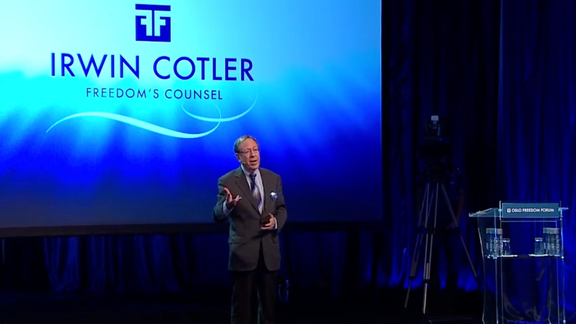
An alleged attempt to assassinate Jewish-Canadian human rights lawyer Irwin Cotler by Iranian agents, has been foiled, according to the Globe and Mail.
The Royal Canadian Mounted Police informed Cotler on October 28 that he was at imminent risk of assassination within 48 hours, from two Iranian agents, according to an anonymous source speaking to the newspaper.
The veteran campaigner, who as Minister of Justice and Attorney General of Canada, launched Canada's first National Justice Initiative against Racism and Hate, has been under 24/7 protection from the RCMP since last year’s October 7 attacks in Israel by Iran-backed Hamas.
The Globe and Mail reported that The Canadian Security Intelligence Service (CSIS) told him that he was a high-profile target of Iran, and as such, he was given protection including bulletproof vehicles and heavily armed officers.
Cotler, an international human-rights lawyer and parliamentarian from 1999 until 2015, has criticized Iran for its conduct in the 2020 downing of Ukraine International Airlines Flight 752, in which 55 Canadian citizens and 30 permanent residents were among the 176 people killed. The airliner was shot down as it was taking off from Tehran with two missiles fired by the IRGC air defense forces.
He has also been vocally against Tehran’s support of groups designated as terrorists be governments, including Hamas, after the October 7 attacks in Israel which killed over 1,100 mostly civilians and saw more than 250 people taken hostage to Gaza.
Dozens of such plots have been foiled around the world in the last two years, in countries including the UK, US and Europe, as Iran tries to assassinate Jewish and Israeli targets, in addition to dissidents abroad. US authorities have also accused Tehran of being behind plots to kill President-elect Donald Trump and his former top officials.
Earlier this year, Canada, which severed diplomatic ties with Iran over a decade ago, joined the US in branding Iran’s Islamic Revolutionary Guards Corps a terrorist group, as plots continue to emerge globally.
Cotler also campaigned since 2008 to have the IRGC designated a terrorist entity.
This month, in one of the highest profile cases, the US Justice Department charged Farhad Shakeri, accused of being an Iranian government asset, in connection with an alleged plot ordered by Iran’s IRGC to kill Trump.
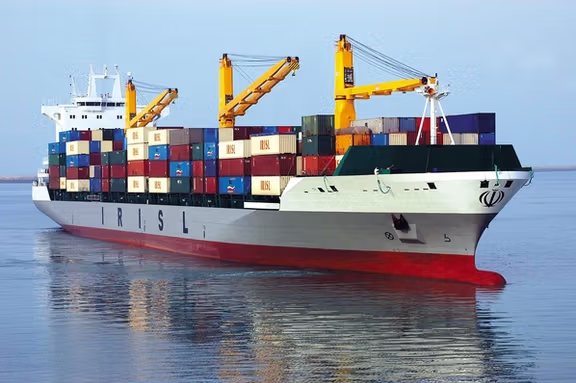
The European Union and the United Kingdom have imposed fresh sanctions targeting Iran's shipping and aviation industries, citing the transfer of arms to Russia and militant groups in the Middle East and Red Sea region.
The measures aim to curb Iran’s ability to facilitate drone, missile, and military technology transfers.
The European Union added the Islamic Republic of Iran Shipping Lines (IRISL) and its director, Mohammad Reza Khiabani, to its sanctions list, accusing the company of transporting drones and military equipment for the Islamic Revolutionary Guard Corps (IRGC).
Ports, including Amirabad and Anzali, were also named, with sanctions prohibiting transactions unless for humanitarian needs. The EU's measures also include restrictions on Russian shipping companies accused of carrying Iranian-made arms to aid Russia’s war in Ukraine.
“This additional measure is targeted to the use of vessels and ports for the transfer of Iranian-made Unmanned Aerial Vehicles (UAVs), missiles, and related technologies and components,” read a statement released after the EU Foreign Ministers meeting in Brussels.
Britain also announced on Monday that it has imposed sanctions on Iran’s national airline and shipping carrier, citing Iran’s transfer of ballistic missiles to Russia as the reason for the measures.
The sanctions target Iran Air, the state-owned airline, and the Islamic Republic of Iran Shipping Lines (IRISL), freezing their assets due to their involvement in supplying weapons to Russia for use in its war against Ukraine.
“Iran’s attempts to undermine global security are dangerous and unacceptable,” said British Foreign Secretary David Lammy.
“We reiterate our call on Iran to cease its support for Russia's illegal war in Ukraine.”
As part of the sanctions, Iran Air’s direct commercial flights to and from the UK will face further restrictions. Britain also sanctioned the Russian cargo ship Port Olya-3 for its role in transporting military supplies to Russia.
Iran’s Foreign Minister Abbas Araghchi dismissed the allegations on Sunday, saying that Iran has not transferred ballistic missiles to Russia, referencing Ukrainian President Volodymyr Zelensky’s acknowledgment of the same. However, EU and US officials have maintained that evidence supports ongoing negotiations and weapons transfers.
However, EU and US officials maintain they have evidence of ongoing negotiations and transfers.
These new measures build on previous EU sanctions, including actions against Iranian airlines accused of transporting military equipment. In recent months, European officials have described Iranian-made UAVs and potential ballistic missile deliveries as escalating threats to European security.
The new measures are part of a wider strategy to economically and diplomatically isolate Iran. In September, the United States, citing intelligence shared with its allies, reported that Russia had received ballistic missiles from Iran for use in its ongoing conflict in Ukraine. In response, Washington imposed sanctions on the vessels and companies involved in facilitating the weapons transfers.
While the EU and the UK seek to curtail Iran’s military influence, Iranian officials argue the sanctions lack a legal or moral foundation and threaten to deepen Iran’s alignment with Russia, further entrenching the complex dynamics of the Ukraine conflict.
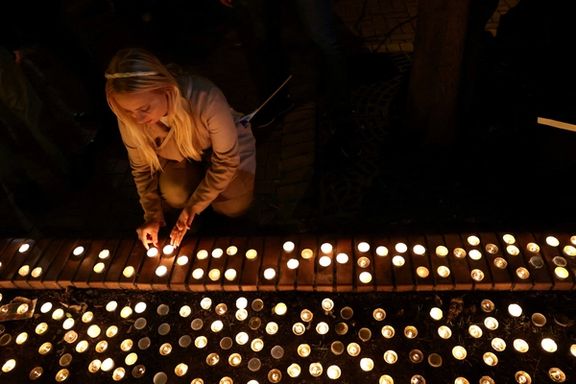
A lawsuit was filed against Iran in Washington DC on Sunday by families of victims accusing the Islamic Republic of funding the Hamas-led invasion of Israel on October 7, 2023.
The case was filed in the US District Court by families of those killed on October 7 in addition to families of those killed fighting in Gaza in the ensuing war sparked by the Iran-backed group which the US has designated as a terrorist organization.
The case details Iran’s funding of Hamas, one of many groups the Islamic Republic backs for the purpose of destroying the Jewish state.
In addition to documents seized in Gaza since the fighting, lawyers for the plaintiffs have obtained original documents which refer to a secret planning meeting of a small group of Hamas’s political and military leaders in December 2022.
The New York Times, which has independently reviewed the documents, said that during the meeting, Yahya Sinwar, the assassinated Gaza-based leader of the group, requested an additional $7 million a month from the Islamic Revolutionary Guard Corps to fund the attack, which he termed the “big project.”
Two lawyers in the case, Gary Owen and Lee Wolosky, said: “Hard, incontrovertible evidence of who funded Hamas is now becoming available in the form of documents, bank records, and the like, and we intend to hold those parties accountable, in the courts of the United States or elsewhere, for however long it takes.”
Iran’s Islamic Revolutionary Guards Corps is also named in the lawsuit as having been key in coordinating between Hamas and Hezbollah in Lebanon, Iran’s largest militia which launched attacks on Israel on October 8.
Other groups named in the lawsuit and also backed by Iran are Palestinian Islamic Jihad and the Popular Front for the Liberation of Palestine, all of which have been designated foreign terrorist organizations by the US.
On October 7, the single most deadly day for Jews since the Holocaust, over 1,100 mostly civilians were murdered, including 46 Americans. Another 251 people were taken hostage to Gaza, 101 remain, including seven Americans, three of whom are presumed dead.
A further 30 Americans have died fighting during the war in Gaza, according to the State Department, including Moshe Leiter, 39, whose father, Yechiel Leiter, is set to become Israeli ambassador to the United States next year.
It is not the first time such a case has been filed against Iran, which last year, the US named as the number one sponsor of state terrorism.
In 2011, lawyers in Manhattan representing families of victims of the September 11 attacks won a default judgment against Iran, Hezbollah, the Taliban and Al Qaeda. The lawsuit claimed Iranian officials helped the hijackers who flew jetliners into the World Trade Center and the Pentagon.
In July, the Anti Defamation League launched a case on behalf of 125 victims’ families from October 7, against Iran, North Korea and Syria. ADL is working with the law firm, Crowell & Moring LLP.
A statement said: “Filed on July 1, 2024, the complaint states that the plaintiffs should receive compensation for their permanent damage, which would come from the US Victims of State Sponsored Terrorism Fund, a fund Congress created in 2015 to allow American victims of terrorism such as those in this case to obtain some meaningful relief for their suffering."
Alone and defiant with one fist in the air in the middle of a busy intersection in Tehran, prominent Iranian dissident and blogger Hossein Ronaghi held a sit-in protest that briefly landed him in jail, according to his mother who spoke to Iran International.
Ronaghi had posted a photo of himself with his lips sewn shut on Saturday.
“Perhaps this will be a wake-up call … Long live Iran.”
Ronaghi was repeating the final words of his friend Kianoosh Sanjari, a journalist and activist who took his own life last week to protest the imprisonment of fellow dissidents.
Ronaghi has since been released from prison.
Videos posted to social media show Ronaghi protesting on Monday in the busy Valiasr junction as cars, motorbikes and pedestrians cross by without seemingly making any reaction.
Ronaghi’s mother Zoleikha Mousavi told Iran International that the street was filled with plainclothes officers, most of them women.
Some officers also allegedly attacked Mousavi, but after her shouting and protests, they let her go.
She told Iran International exclusively that an ambulance sped towards her son, but said she intervened to stop it. Several agents later took Ronaghi away in what she described as a violent arrest.
On Telegram, Ronaghi’s account posted that he was arrested in the early evening at the intersection by several armed officers and that after several hours of detention he was dropped off in front of his home by the same officers.
Ronaghi also announced that he would appear before a Revolutionary Court in Tehran with his sewn lips in another form of resistance.
The gesture would be protest, he said, “against the occupiers of this land, against poverty, against executions, against the oppression of women and imprisonment of the people, and against every form of injustice imposed on this country by the Islamic Republic," he wrote on X.